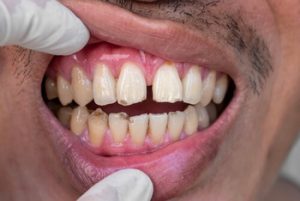Root canals are a common dental procedure designed to save a tooth that has been severely damaged or infected. But what happens after the root canal is done? Specifically, how long does a root canal last without a crown? This question is important for anyone hoping to maintain their natural tooth after treatment, especially if they’re considering delaying or skipping crown placement.
In this article, we’ll explore the root canal process, what happens if you go without a crown, and the key factors that affect how long a root canal can last without one.
What Is a Root Canal and Why Is It Done?
A root canal treatment is a dental procedure used to treat an infected tooth or one that has suffered extensive damage. During the root canal, your dentist removes the infected pulp from the pulp chamber and the tooth’s root, cleans out the area, and seals it with a filling. This prevents further infection and helps you retain your natural tooth structure.
The root canal procedure is often recommended when the soft tissue inside the tooth, including nerves and blood vessels, becomes infected or inflamed due to decay, cracks, or injury. Without timely treatment, the infection can spread, leading to tooth pain, abscesses or even tooth extraction.
 The Role of a Crown After a Root Canal
The Role of a Crown After a Root Canal
After a root canal is completed, the treated tooth becomes more brittle. This happens because the blood supply has been removed, weakening the remaining tooth structure. A dental crown is often placed on the treated tooth to restore its strength, protect it from further damage, and prevent fracture.
But what if the crown is delayed or skipped entirely? This is where the question arises: how long does a root canal last without a crown?
How Long Can a Root Canal Last Without a Crown?
The longevity of a root canal without a crown depends on several factors, including:
- Tooth location
- Amount of remaining tooth structure
- Oral hygiene practices
- Biting pressure
- Type of tooth (front tooth vs molar)
Generally, a root canal can last several months to a few years without a crown, but this is far from ideal in many cases.
Factors That Affect the Longevity of a Root Canal Without a Crown
1. Location of the Tooth
If the root canal is performed on a front tooth, it may last longer without a crown. That’s because front teeth aren’t subjected to the same biting forces as molars. They also tend to have a simpler root canal structure and more intact enamel after treatment.
However, back teeth (molars and premolars) do much of the heavy chewing work and need more structural reinforcement. Skipping a crown in these cases increases the risk of fracture or failure.
2. Amount of Remaining Tooth Structure
If a lot of the natural tooth was lost due to decay or trauma, then the treated tooth is already weak. Without a crown to protect it, the chances of it breaking increase significantly. The less tooth structure you have left, the more important a crown becomes.
3. Biting and Chewing Habits
Do you grind your teeth or bite into hard foods regularly? Then the lifespan of your root canal without a crown could be very limited. Even with proper care, these habits put pressure on the treated tooth, leading to cracking or further damage.
4. Oral Hygiene and Dental Care
Practising good oral hygiene and keeping up with regular dental visits will always play a role in how long a root canal lasts without a crown. If plaque builds up around the treated tooth or gum disease develops, it increases the risk of further infection and failure of the root canal therapy.
Risks of Not Getting a Crown After a Root Canal
Going without a crown can result in several complications:
- Fracture of the tooth
- Reinfection due to bacterial leakage from tooth decay
- Root canal failure
- Tooth loss requiring extraction and replacement
Situations Where a Crown May Not Be Needed Right Away
There are certain situations where a crown might not be immediately necessary:
- Front teeth with minimal damage
- Temporary restorations until a crown can be placed
- A clear post-treatment care plan with a set timeline
Still, it’s important to keep in mind that crown placement is generally not optional for long-term success.
How to Protect a Root Canal-Treated Tooth Without a Crown
If for any reason you delay getting a crown, here are a few tips to help you protect your treated tooth:
- Avoid hard foods
- Chew on the opposite side of your mouth
- Practice good oral hygiene with regular brushing and flossing
- Attend follow-up appointments with your dentist
What Happens If the Tooth Fails Without a Crown?
If the treated tooth breaks or becomes infected again, your dentist may recommend:
- Root canal retreatment
- Apicoectomy (surgical root tip removal)
- Tooth extraction followed by options like implants, bridges, or dentures
These additional dental treatments and procedures can be more complex and costly, which is why investing in a crown soon after root canal treatment is usually the best approach.
Can You Delay a Crown for Financial Reasons?
Some patients choose to postpone crown placement due to cost. While this is understandable, you should speak to your dentist about possible solutions such as:
- Temporary crowns
- Payment plans
- Dental financing programs
Delaying the crown for too long can lead to complications that may end up being more expensive in the long run.
 Summary: So, How Long Does a Root Canal Last Without a Crown?
Summary: So, How Long Does a Root Canal Last Without a Crown?
A root canal can last for a short time without a crown, particularly if the tooth is a front tooth and you take excellent care of it. However, for molars or teeth with significant loss of structure, going without a crown drastically reduces the life expectancy of the treatment.
With proper care and protection, you might get months or even a couple of years, but this is not guaranteed. Completing the process with a permanent crown is the best way to ensure a long-lasting result.
FAQs
Can a root canal be successful without a crown?
It can be, particularly for front teeth with minimal damage, but success without a crown is far less likely in molars.
How long does a root canal last without a crown on a molar?
Often, only a few months to a year, depending on oral habits and how much of the tooth structure remains.
Is a crown always needed after a root canal?
Not always, but a crown is highly recommended for most teeth, especially back teeth, to prevent further infection or damage.
What happens if I wait too long to get a crown?
The treated tooth may crack or become reinfected, leading to root canal failure or the need for tooth extraction.
Should I avoid chewing on a tooth with a root canal but no crown?
Yes. Try to use the other side of your mouth to prevent putting pressure on the damaged tooth.
Final Thoughts
Root canal treatment is an excellent way to save an infected tooth, but the job isn’t done until the crown is in place. Skipping this final step increases the chances of fracture, further damage, or root canal failure.
If you’ve had a root canal procedure and are wondering whether to proceed with a crown, the short answer is yes—you likely need a crown to ensure your treated tooth lasts as long as possible.
Talk to your dentist about your options, especially if cost is a concern. For personalised advice and professional dental care, contact us today at (08) 9783 9006. With timely treatment and good oral hygiene habits, you can protect your dental health and enjoy a healthy smile for years to come.
References:
https://my.clevelandclinic.org/health/treatments/21759-root-canal
https://www.nhs.uk/conditions/root-canal-treatment/what-happens/
https://www.aae.org/patients/root-canal-treatment/what-is-a-root-canal/root-canal-explained/


Recent Comments